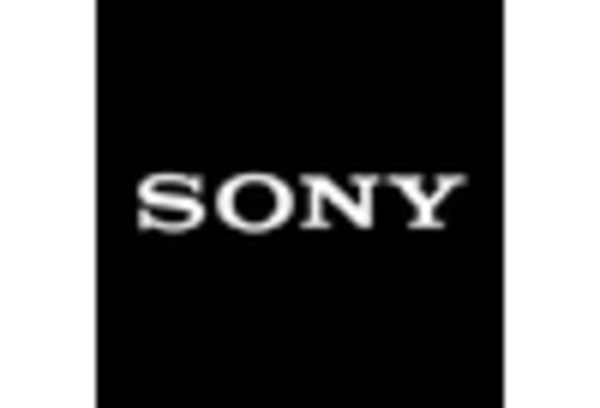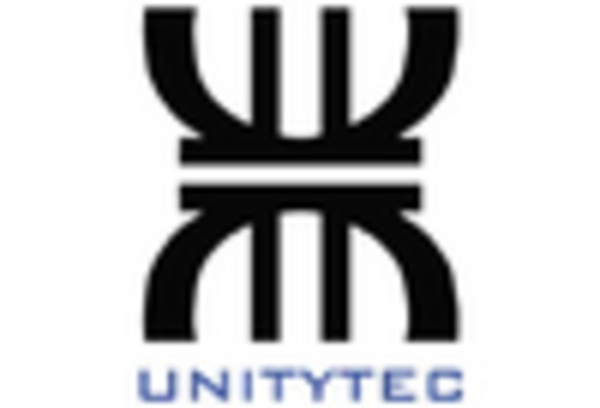Collaboration Between Industries
The collaboration between various industries, including gaming, film, and technology, is emerging as a vital driver for the immersive technology-in-entertainment market. In South Korea, partnerships between tech companies and entertainment studios are fostering innovation and creating new content formats. For example, collaborations between game developers and filmmakers are leading to the production of immersive experiences that blend gaming and cinematic storytelling. This synergy not only enhances the quality of content but also broadens the audience base. As industries converge, the potential for cross-platform experiences increases, which could lead to a more integrated entertainment landscape. Such collaborations are expected to propel the growth of the immersive technology-in-entertainment market, as they create diverse opportunities for engagement and revenue generation.
Government Support and Investment
The South Korean government plays a pivotal role in fostering the growth of the immersive technology-in-entertainment market through various initiatives and funding programs. Recent policies aimed at promoting digital content and technology innovation have led to increased investments in immersive technologies. For instance, the government allocated approximately $100 million to support the development of VR and AR content in 2025. Such financial backing is likely to stimulate research and development, enabling local companies to create cutting-edge immersive experiences. Furthermore, government-sponsored events and exhibitions provide platforms for showcasing new technologies, thereby enhancing visibility and encouraging collaboration within the industry. This supportive environment is expected to drive the expansion of the immersive technology-in-entertainment market.
Technological Advancements in VR and AR
The rapid evolution of virtual reality (VR) and augmented reality (AR) technologies is a primary driver for the immersive technology-in-entertainment market. In South Korea, advancements in hardware, such as high-resolution displays and motion tracking systems, enhance user experiences. The market for VR headsets is projected to reach approximately $1.5 billion by 2026, indicating a robust growth trajectory. Furthermore, software innovations, including more sophisticated gaming engines and interactive storytelling techniques, are likely to attract a broader audience. As these technologies become more accessible and affordable, they are expected to stimulate demand across various entertainment sectors, including gaming, film, and live events, thereby significantly impacting the immersive technology-in-entertainment market.
Consumer Demand for Enhanced Experiences
The growing consumer demand for more engaging and interactive entertainment experiences is a crucial driver for the immersive technology-in-entertainment market. South Korean audiences increasingly seek out novel experiences that transcend traditional media formats. This trend is evident in the rising popularity of immersive theater, VR gaming, and interactive exhibitions, which offer unique ways to engage with content. Market Research Future indicates that approximately 70% of consumers express interest in trying immersive experiences, suggesting a strong potential for growth. As entertainment providers respond to this demand by integrating immersive technologies, the market is likely to witness significant expansion, with projections estimating a compound annual growth rate (CAGR) of around 25% over the next five years.
Cultural Embrace of Gaming and Entertainment
South Korea's cultural affinity for gaming and entertainment serves as a significant driver for the immersive technology-in-entertainment market. The country boasts one of the highest rates of gaming participation globally, with approximately 83% of the population engaging in gaming activities. This cultural embrace fosters a conducive environment for the adoption of immersive technologies, as consumers are more inclined to explore new gaming experiences. Additionally, the popularity of e-sports and gaming tournaments has led to increased investments in immersive technologies, with projections indicating that the e-sports market could exceed $1 billion by 2025. This cultural landscape not only supports the growth of the immersive technology-in-entertainment market but also encourages innovation and collaboration among developers and content creators.

















